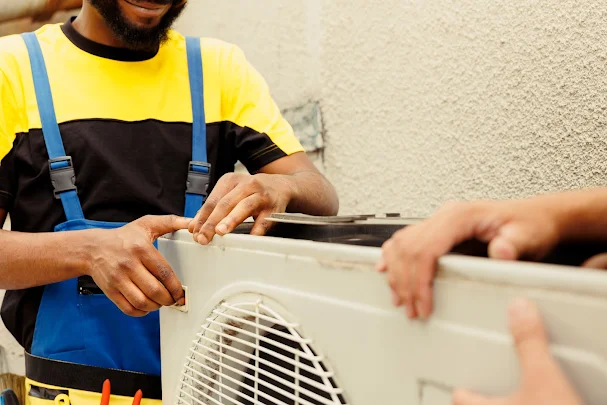Can I Use Solar Panels to Run My Air Conditioner?
Solar energy is prevalent these days, and for good reason. Homeowners want to lower their energy costs and lessen their carbon footprint, and clean, renewable energy promises to do just that. So, can solar panels power an air conditioner?
In a nutshell, the answer is absolutely! Depending on the size of your solar array and your home's electrical requirements, you can run your air conditioner totally on solar power. Solar panels may save energy all year round, even if you only use them to augment your power source.
The Basic Configuration for Using Solar Panels to Run an AC Unit
When installing solar panels to power your air conditioner, an inverter, a battery, and the solar panels must be arranged carefully. An inverter is required to enable this conversion because your air conditioner runs on alternating (AC) power, while solar panels produce direct (DC) power.
Selecting the Appropriate Framework
As numerous options are available, selecting the ideal system for your needs is crucial when using solar energy to power your air conditioner. Here are a few choices:
A System on the Grid
When you remain connected to the grid, your solar panels and inverter are placed alongside your current air conditioning unit. Since everything is connected to the municipal power source, you won't need a battery, which will save your initial expenses.
You may attach an optional battery to use solar power at night. Remember that even with a battery, grid-tied solar panels are inoperable during a power outage. Utility workers and your home's wiring would be at risk if you let them use the power when the grid is down.
A System Off-Grid
An off-grid setup might be the best option for those seeking total autonomy. Installing solar batteries is essential to have power at night and overcast days. Due to their lower reliability compared to on-grid setups, off-grid installations are usually limited to recreational vehicles and dwellings in rural areas.
Solar-Powered Air Conditioners
DC systems are directly connected to your solar panels and offer the option of battery operation, making them perfect for off-grid usage. However, because alternating current air conditioners include an inverter, they can operate on grid power if solar energy is insufficient. Then, hybrid units switch between the grid and solar array based on the energy produced and your home's electrical requirements.
Things to Think About Before Using Solar Power to Run an AC
Adopting solar-powered air conditioning is a cost-effective and environmentally responsible decision. Nonetheless, it's crucial to consider a few things before making a final choice.
Direct Investment
Both solar-powered air conditioners and panels require a one-time investment. Balance this against the long-term savings, considering that a solar-powered air conditioner usually offers a quicker return on investment than a complete solar panel array. Additionally, panels offer greater flexibility, enabling you to use renewable energy to power additional equipment.
The federal tax credit for solar energy systems may also apply to solar panels, lowering the upfront cost of your purchase. Up to 2033, new solar panels placed in residential settings are eligible for a 30% tax credit; however, this credit will start to fall.
Location in Space
More air conditioning is needed in hotter southern climates, but solar panels in these areas typically provide more electricity because of the long, bright days. Living in an area with more clouds means that your solar panels will not produce as much electricity, but you might also need less air conditioning.
Size of AC Unit
The amount of solar electricity required to run your AC depends on its cargo, which also dictates how much power it consumes. Larger homes may require you to install additional solar panels because they usually require more air conditioning and other energy-intensive features.
How many solar panels are needed to run an air conditioner?
The number of solar panels required is determined by the previously mentioned variables, such as area positioning, solar panel type, and overall efficiency. A typical solar panel yields 250 watts, while the average household air conditioner uses about 3,500 watts. In this case, 14 panels would be required to run the air conditioner.
Installers size solar arrays, of course, to balance the house's energy needs, not simply the air conditioner. For this reason, the precise number of panels you require will also depend on whether you intend to power lights, appliances, and other items that are powered by other circuits.
Use HVAC Repair Guide to Stay Cool and Save Energy
Using solar power to run your air conditioner is a creative and sustainable choice. Leading this movement, HVAC Repair Guide customizes solutions to meet the unique requirements of your house. You can rely on us to help you get the most out of solar-powered air conditioning since we're dedicated to excellence and your total pleasure.

